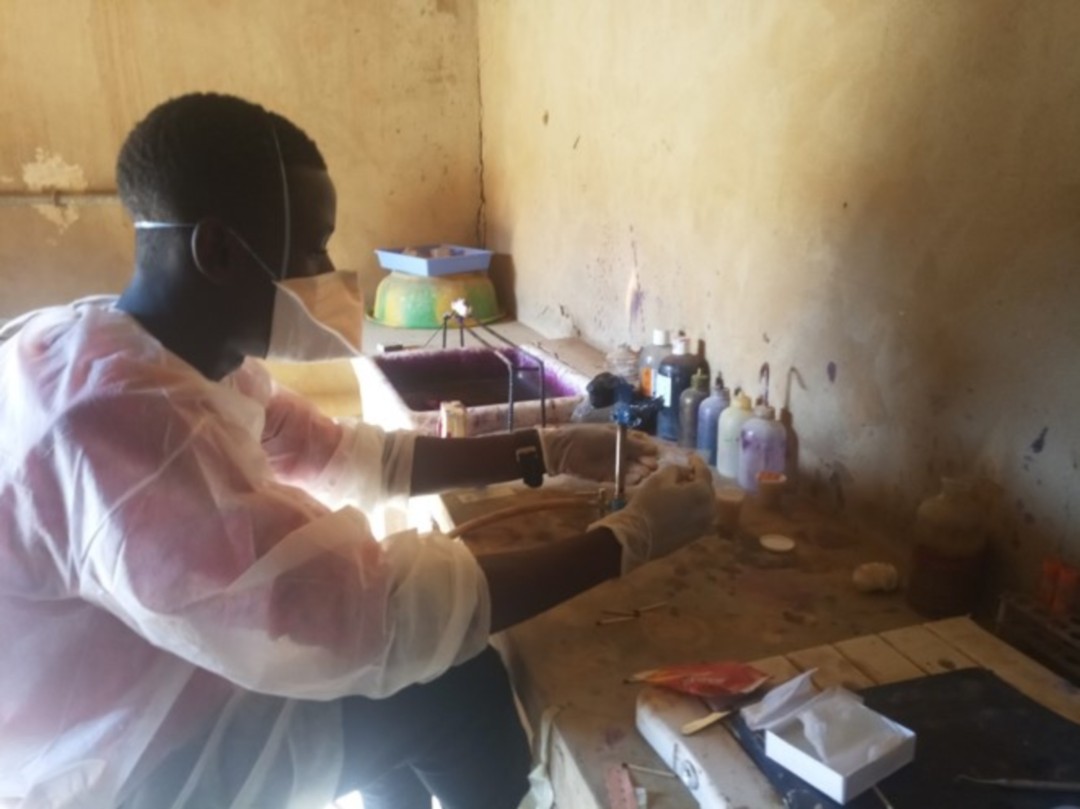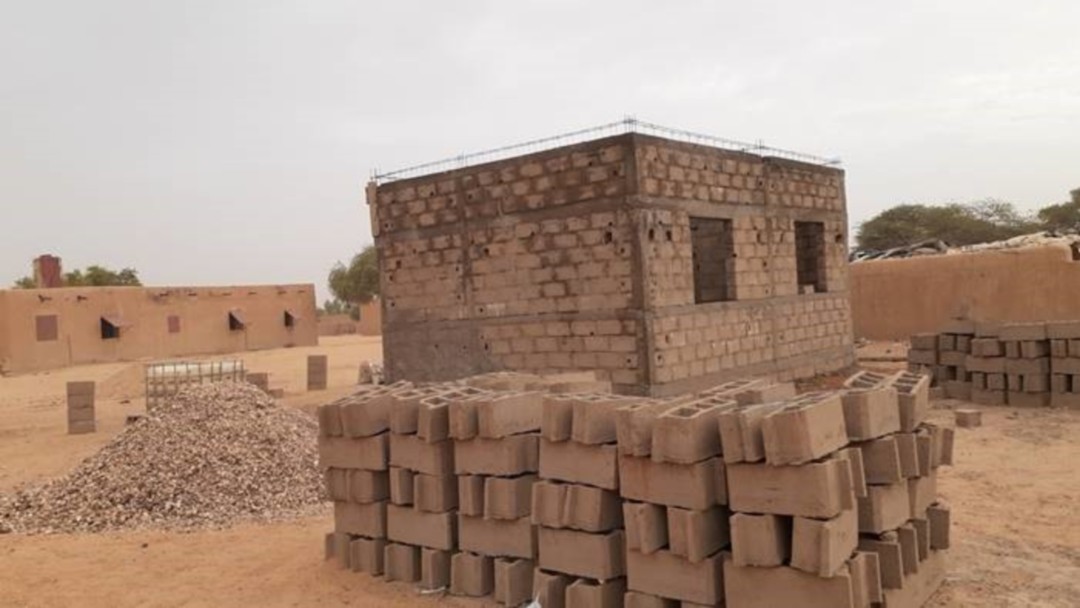Construction of a diagnostics laboratory
The project aimed to construct a diagnostics laboratory in Gossi. It also included provision of medicines for the “hospital for Nomads”. The hospital is the only one within a radius of 200km and treats many cases of tuberculosis, malaria, ophthalmology, AIDS. It also provides maternal healthcare with the help of several matrons. HIV/AIDS and TB are the most frequent causes of morbidity in the region. The new laboratory would be essential to enable detection and subsequent treatment of these diseases.
The diagnostics laboratory was successfully constructed, walls were painted, and the floor and benches were tiled for more efficient and hygienic maintenance. The building was equipped with solar panels, allowing for electrification and the installation of a fan, a great comfort for the region. In addition, the laboratory was connected to the water tower belonging to the “hospital for Nomads”. During the year, a laboratory technician began his duties and was to be joined by a female laboratory assistant once she had completed her studies, funded by ODSAMS, in Bamako. Hospital staff are pleased to have a functional and hygienic laboratory to work in and with, in particular considering the difficult climate and environment in the region.
Oeuvre de Soeur Anne-Marie Salomon (ODSAMS Millau-Mali) is a French association founded in 1999. It aims to initiate humanitarian aid projects in support of African communities.
News
Type
HealthDuration
December 2019 – November 2020Location
Gosssi / MaliWith whom
L' oeuvre de Soeur Anne-Marie Salomon (ODSAMS Millau-Mali)
Website




Mali
Population
18.5 million (2017)
Per Capita Income
USD 770/year (2017)
Poverty rate *
41% (2009)
Literacy rate
33% (2016)
Human Development Index
182nd out of 189 countries (2018)
Mali has experienced conflict on a regular basis since its independence in 1960. The military coup in March 2012 triggered a political and security crisis and although peace negotiations were concluded in 2015, the situation remains volatile, preventing large-scale return of those who fled the country or are internally displaced. Fragile security in the northern regions is hampering economic recovery. The crisis has worsened the human development outlook; chronic food insecurity is affecting 25% of families. One in three children under-five suffers from stunting. Drought and conflict have increased the extreme poverty rate, rising from 48% in 2011 to 50% in 2013.
Sources: World Food Program, UNICEF, World Bank, 2016 Human Development Report, Human Development Indices and Indicators (2018 Statistical Update)
*The percentage of the population living below the national poverty line.